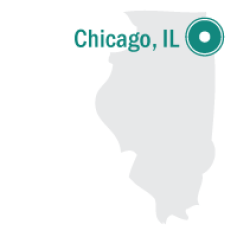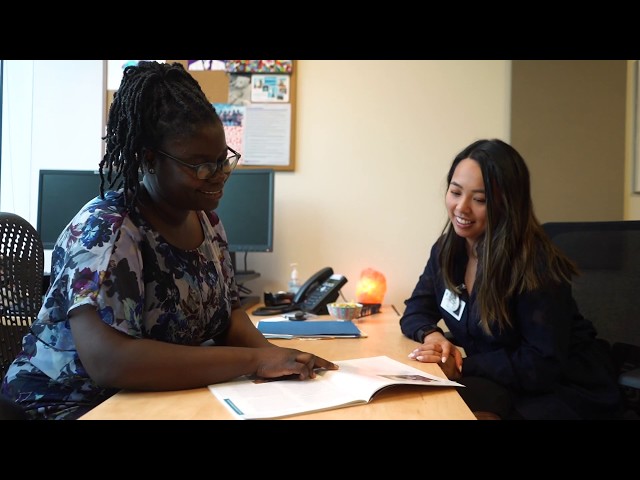Closing Gaps in Cancer Care for Underserved Communities in Chicago
As a member of the Alliance, Northwestern University Feinberg School of Medicine (Feinberg) will work with its community partner AllianceChicago to address gaps and disruptions in care for patients who require treatment for cancer and primary or chronic diseases, such as diabetes or high blood pressure. These gaps may occur because of the lack of coordination between the  cancer care centers and the AllianceChicago primary care clinics.
cancer care centers and the AllianceChicago primary care clinics.
Together, Feinberg and AllianceChicago will introduce an intervention at the patient, health care provider, and health system levels in a number of AllianceChicago’s health centers in the Chicago area. Through the intervention, Feinberg and AllianceChicago aim to build the capacity of AllianceChicago’s providers to help their patients with cancer receive the highest quality comprehensive care. The team will also study patient outcomes to determine the multi-level benefits of implementing this intervention on a broad scale.
OUR APPROACH
Establish the capacity to develop, implement and monitor integrated cancer care plans at community primary care sites
- Conduct a baseline assessment with providers and other health center staff to determine the capacity and readiness of each community primary care site to coordinate cancer care
- Incorporate the 4R integrated cancer care plan as the routine standard of care for AllianceChicago patients facing cancer
- Implement the 4R Model for Care Planning and Delivery at 15 community primary care sites across the AllianceChicago network
- Provide 4R care plans to patients and their caregivers as cancer care begins; to help patients understand and manage important care events (such as cancer and non-cancer treatment, preventive care, support services, self-care and lifestyle choices)
- Use the 4R care plans to clearly identify provider responsibilities for various events in the patient care plan
- Designate a panel of stakeholders to review data about patient needs, system performance and outcomes; and propose ways to improve the 4R model
Examine the processes for care planning and coordination across AllianceChicago sites
- Identify gaps in care and determine the degree to which setting plays a role in overcoming these gaps
- Identify effective or useful practices by site to determine whether these practices can be applied more widely
- Provide local primary care providers at AllianceChicago clinics with feedback on patient experiences with care to incorporate lessons learned and refine the 4R intervention
Program Profile Video
PROGRAM DIRECTOR
 Melissa Andrea Simon, M.D., M.P.H.
Melissa Andrea Simon, M.D., M.P.H.George H. Gardner Professor of Clinical Gynecology
Vice Chair of Clinical Research
Departments of Obstetrics and Gynecology,
Preventive Medicine and Medical Social Sciences
Robert H. Lurie Comprehensive Cancer Center
Northwestern University Feinberg School of Medicine
Email: m-simon2@northwestern.edu
References
- National Cancer Institute. Cancer Health Disparities. 2008. Available at: https://www.cancer.gov/about-nci/organization/crchd/cancer-health-disparities-fact-sheet Accessed August 4, 2017.
- Trosman, J.R.; Carlos, R.C.; Simon, M.A.; et al. Care for a Patient With Cancer As a Project: Management of Complex Task Interdependence in Cancer Care Delivery. J Oncol Pract. 2016 Aug 30. pii: JOPR013573.
- Weldon, C.B.; Friedewald, S.M.; Kulkarni, S.A.; Simon, M.A.; Carlos, R.C.; Strauss, J.B.; Bunce, M.M.; Small, A.; Trosman, J.R. Radiology as the Point of Cancer Patient and Care Team Engagement: Applying the 4R Model at a Patient’s Breast Cancer Care Initiation. J Am Coll Radiol. 2016 Dec;13(12 Pt B):1579-1589.
